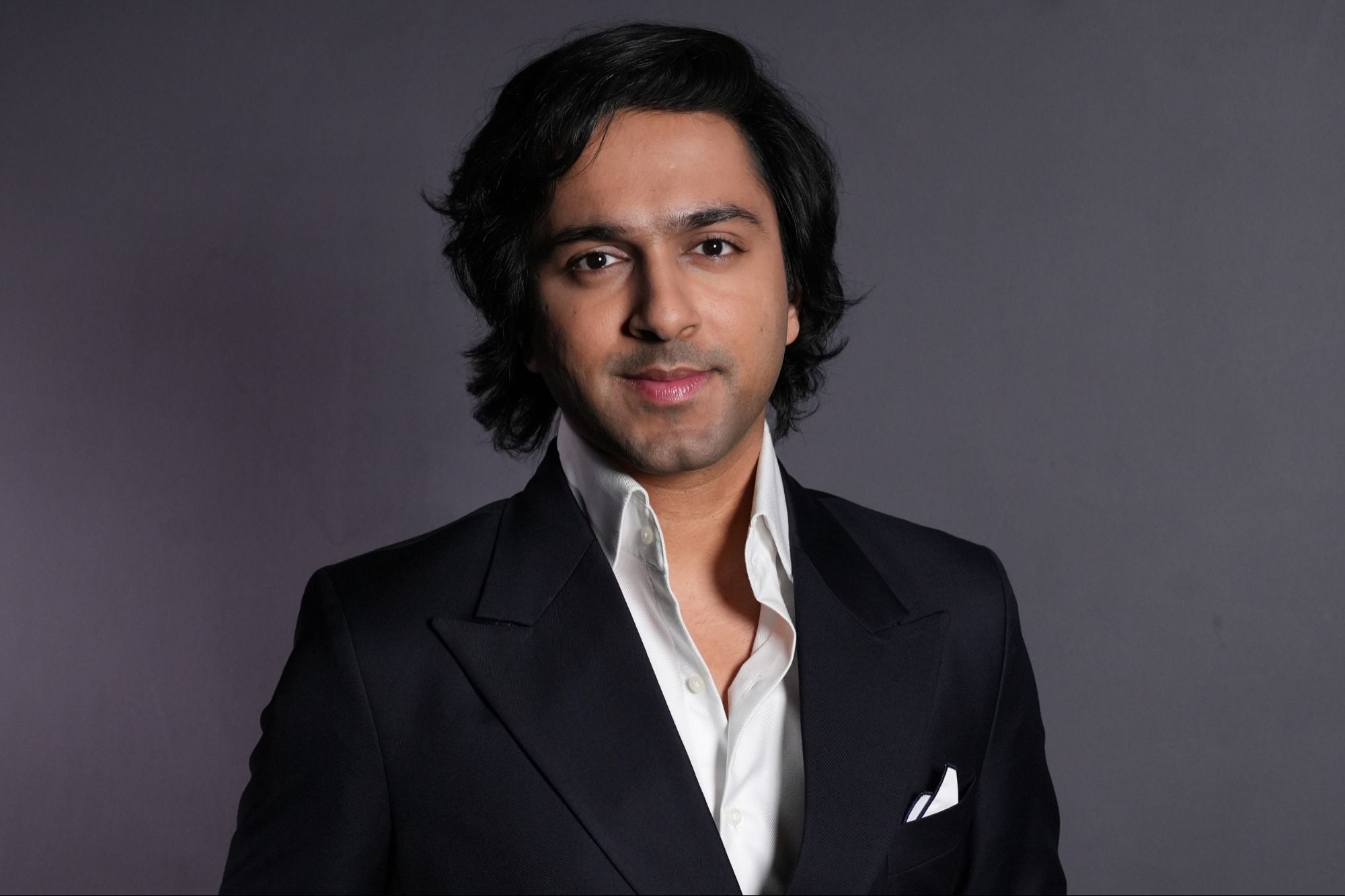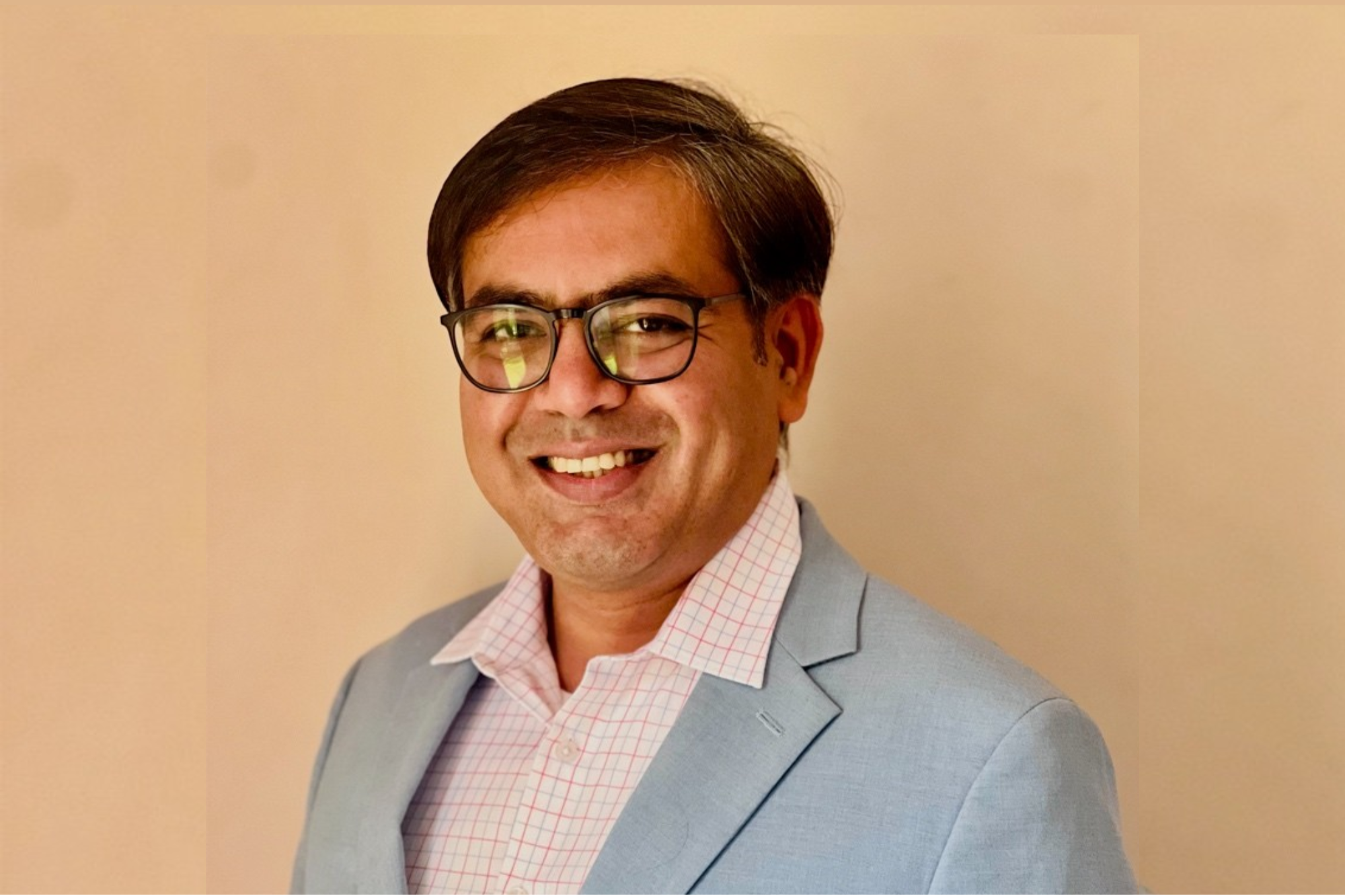Why Indian Cybersecurity Startups Are Struggling to Match Silicon Valley Counterparts: Saket Modi Explains Since India hasn't produced many global product companies, there aren't enough people here who know how to build products the right way, says Saket Modi, Co-founder & CEO, Safe Security
Opinions expressed by Entrepreneur contributors are their own.
You're reading Entrepreneur India, an international franchise of Entrepreneur Media.

Digital security parameters have shifted drastically in recent years. Cyberthreats have grown far more sophisticated with the rise of new-age technologies such as artificial intelligence (AI), in ways few could have imagined. The need for advanced AI-driven firewalls has never been more important than now.
Not that the government and IT firms are not at work to address this, there's still a big room for improvement. It's worth noting that Indian organisations face 3,291 weekly cyberattacks, 44 per cent above the global average, according to a report by Check Point Software.
There could be a huge turnaround in this regard when more startups and private players chip in with their understanding of local challenges and context. Unfortunately, cybersecurity startups in India have remained away from the spotlight unlike fintech and quick commerce.
Finding a firm that can truly compete is a tough task, even though a few players like CloudSEK, IDfy, and Seclore, among the most funded cybersecurity startups in India, are offering such services. However, a lot of firms remain relatively small in scale, let alone capable of competing with global giants.
Is the possibility of a desi cybersecurity startup that can take on their Silicon Valley counterparts just wishful thinking? What are the challenges and what can be done to fix them? We spoke to Saket Modi, Co-founder and CEO of Safe Security, to dive deeper into this.
Twofold problem
Modi believes India's cybersecurity startup ecosystem has a twofold problem.
Lack of security spend
"First, they don't have access to a big enough market. The global spend on cybersecurity is around USD 200 billion, while India spends only USD 3–4 billion. That's less than two per cent of the global spend."
He adds that most of this spend is compliance-driven, when RBI or SEBI mandates something, companies do it. But business owners don't yet see cyber risk as a fundamental business risk.
Looking at the growing market size, the global cybersecurity market was estimated at USD 227.59 billion in 2025 and is projected to reach USD 351.92 billion by 2030, growing at a CAGR of 9.1 per cent. The U.S. cybersecurity market alone is valued at approximately USD 92.73 billion in 2025, projected to reach USD 136.82 billion by 2030, growing at a CAGR of 8.09 per cent during the forecast period, according to Research and Markets.
Not surprisingly, the U.S. has 75 cybersecurity unicorn startups in 2025, which have collectively raised more than USD 38.7 billion in venture capital, with a cumulative valuation of USD 229 billion, as per Beinsure Data.
In comparison, India's market size is valued at USD 5.56 billion and projected to reach USD 12.90 billion by 2030. What is interesting here is that the market is growing at a CAGR of 18.33 per cent, higher than global counterparts, according to Mordor Intelligence.
No originality
Nevertheless, the problem is not only about capital. Modi highlighted the issue of producing world-class products from India.
"Most products we've seen are cheaper versions of something in the U.S. But being cheaper isn't sustainable. Today you're cheaper, tomorrow someone else will be cheaper."
He believes that since India hasn't produced many global product companies, there aren't enough people here who know how to build products the right way. This makes hiring the right talent a big challenge.
Modi advises that anyone building a startup should be obsessed with creating the world's best product rather than worrying about branding, logos, or websites in the early stages. He says most entrepreneurs make the mistake of focusing on marketing and company image without first deeply understanding their customers' problems.
He stresses that founders should speak to at least 100 potential customers before even approaching mentors or investors, as real insights come from those conversations, not assumptions.
"Even simple methods, like paying people in malls for their time, can provide invaluable feedback that may reshape the product idea entirely. Branding and go-to-market strategies can come later. What truly matters at the start is solving a real problem with an exceptional product," he emphasised.
Modi's own journey from India to the U.S.
Today, Modi is well known in the cybersecurity industry. His U.S.-based cybersecurity startup, Safe Security, recently raised USD 70 million in Series C funding led by Avataar Ventures, with participation from Susquehanna Asia Venture Capital, NextEquity Partners, and other existing investors, bringing its total capital raised to USD 170 million. The company now has its sights set on achieving CyberAGI.
"CyberAGI is an autonomous intelligence trained only on cybersecurity. It will be the ultimate system for protecting companies and individuals in the digital world. We aim to be the first in the world to build it," he said.
But there is more to his story. In 2012, he co-founded Lucideus, a service-based cybersecurity firm, during his final year of computer science at the LNM Institute of Information Technology, Jaipur.
By 2018–2019, he made the bold decision to shut down its thriving services business, which generated INR 40 crore in revenue to build a SaaS product.
"We went from INR 40 crore to zero in one year. We had over 100 active projects and we shut them down because we wanted to pivot," Modi recalls.
But what pushed him to change the company's name, move to the U.S., and pivot from services to products? "We stumbled upon a problem that could be solved at a much bigger scale if we could productise it," he explains.
He adds that while services bring companies close to their customers, scaling requires massive manpower.
"Look at TCS, Infosys, Tech Mahindra, they're great companies, but they have lakhs of employees. We were clear that we didn't want to scale by hiring 20,000 people just to get to INR 4,000 crore in revenue," Modi said.
In 2020, the year COVID struck, the company relaunched as Safe Security with a new platform. The pivot worked. Today, Safe Security serves 500 Fortune companies and is a recognised name in global cybersecurity. "Our revenue is in the hundreds of crores now. We went from INR 40 crore to zero, and today we're valued at thousands of crores," Modi says.
But building a product company required mentorship. Modi recalls seeking guidance from industry veterans.
"I remember meeting Anand Chandrasekaran, then Chief Product Officer at Snapdeal. I couldn't afford to hire him, but I asked him to invest a small amount and mentor me every two weeks. Another example was Shri Shivananda, then CTO of PayPal and now global CTO at JP Morgan Chase. I requested him to invest and allow me monthly calls. Similarly, the VP of Engineering at Netflix, who built its entire engineering team, also became an advisor.
"These were all people who had built world-class products, and their guidance was invaluable. My seed round itself was led by John Chambers, former CEO of Cisco, who built Cisco into a Fortune One company in 2000. What Nvidia is to AI today, Cisco was to the internet back then," he emphasised.
But how will India close the gap?
There is no comparison between the infrastructure that supports startups in the U.S. and India. As Modi highlights, the gap in market readiness remains stark. But, more worrying is the mindset. Despite India being the second most targeted country in 2024, business owners still don't see cyber risk as a fundamental business risk. Proofpoint's 2025 Voice of the CISO report revealed that nearly 74 per cent of Indian chief information security officers (CISOs) admitted their organisations were unprepared to respond to attacks. And nearly 95 per cent of security issues involve a human element, and nearly half of all breaches originate inside the organisation, whether by accident or on purpose.
India doesn't just need infrastructure and capital, it also needs a foundational shift in its working culture. Only when people begin to question security concerns will the market start producing great products.











